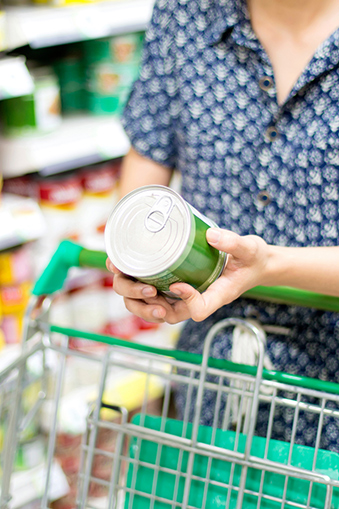Enforcement action: a gradually expanding decision-making practice
The Autorité also acts in the domain of litigation, with a focus on identifying anticompetitive practices that could harm sustainable development.

Floor covering cartel
As the Autorité indicated when it issued fines against the floor covering cartel, practices that have a negative impact in terms of sustainable development are considered particularly serious. In this case, the three main manufacturers of PVC and linoleum flooring had, inter alia, refrained from competing on the basis of the merits of their respective products with regard to environmental criteria, by avoiding using this as a selling point, even though the environmental performance of floor coverings, particularly with regard to emissions of volatile organic compounds, has become one of the main criteria of choice for distributor client, businesses or private consumers. The Autorité found that this agreement may have deterred companies from improving the technical performance of their products and investing in innovative processes intended to improve their environmental performance (Decision 17-D-20 of 18 October 2017).
Following this fine, several French hospitals decided to initiate proceedings in 2022 for compensation for the damage they suffered as a result of the overcharging of millions of meters of linoleum flooring.
Following this fine, several French hospitals decided to initiate proceedings in 2022 for compensation for the damage they suffered as a result of the overcharging of millions of meters of linoleum flooring.
Road transport
In September 2021, the Autorité fined anticompetitive practices that disrupted the digital transition in the road transport sector, with potentially negative effects on the environment. In this sector, various organisations had joined forces to boycott or incite road transport companies to boycott new digital intermediation platforms that offered optimisation services which made it possible to eliminate a level of intermediation or reduce empty returns by road transport companies. Nevertheless, according to ADEME, a 1% reduction in empty returns would result in a 0.70% reduction in greenhouse gas emissions. The Autorité therefore took into account the fact that the practices impeded efforts to improve environmental efficiency of the sector when setting the fine (Decision 21-D-21 of 9 September 2021).


Bisphenol A in food containers: almost €20 million in fines
In January 2024, the Autorité fined three professional canning associations (the FIAC, the ADEPALE and the ANIA) and the can manufacturers’ trade union SNFBM for having implemented a collective strategy intended to prevent manufacturers in the sector from competing on the presence, or absence, of Bisphenol A (BPA) in food containers (cans, tins, etc.).
11 companies, in their capacity as members of these organisations, were also fined. The Autorité considered the practices to be very serious, as they meant that consumers were unable to choose BPA-free products, at a time when these products were available and when BPA was already considered dangerous to health.
The cumulative amount of fines was close to €20 million.
11 companies, in their capacity as members of these organisations, were also fined. The Autorité considered the practices to be very serious, as they meant that consumers were unable to choose BPA-free products, at a time when these products were available and when BPA was already considered dangerous to health.
The cumulative amount of fines was close to €20 million.
